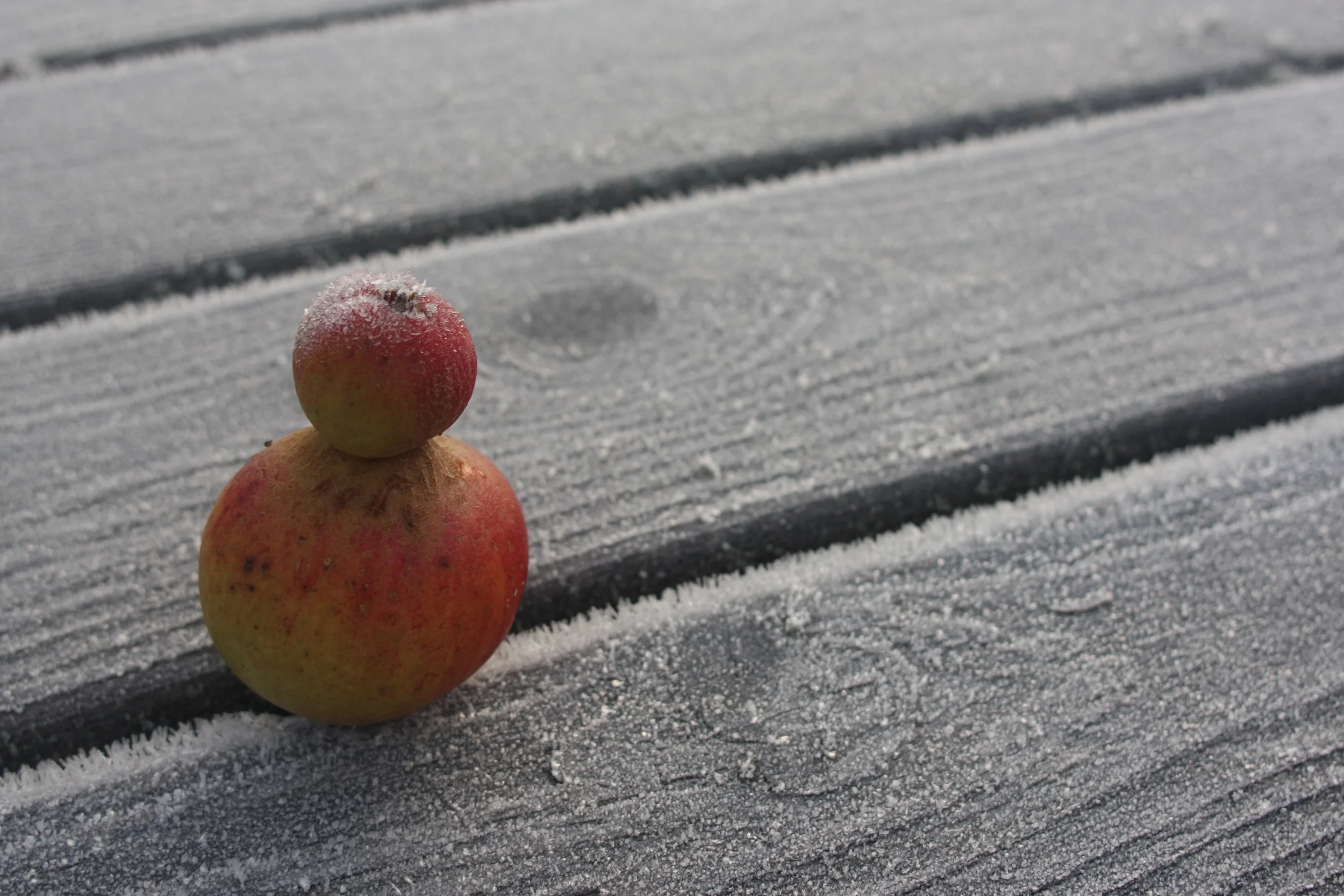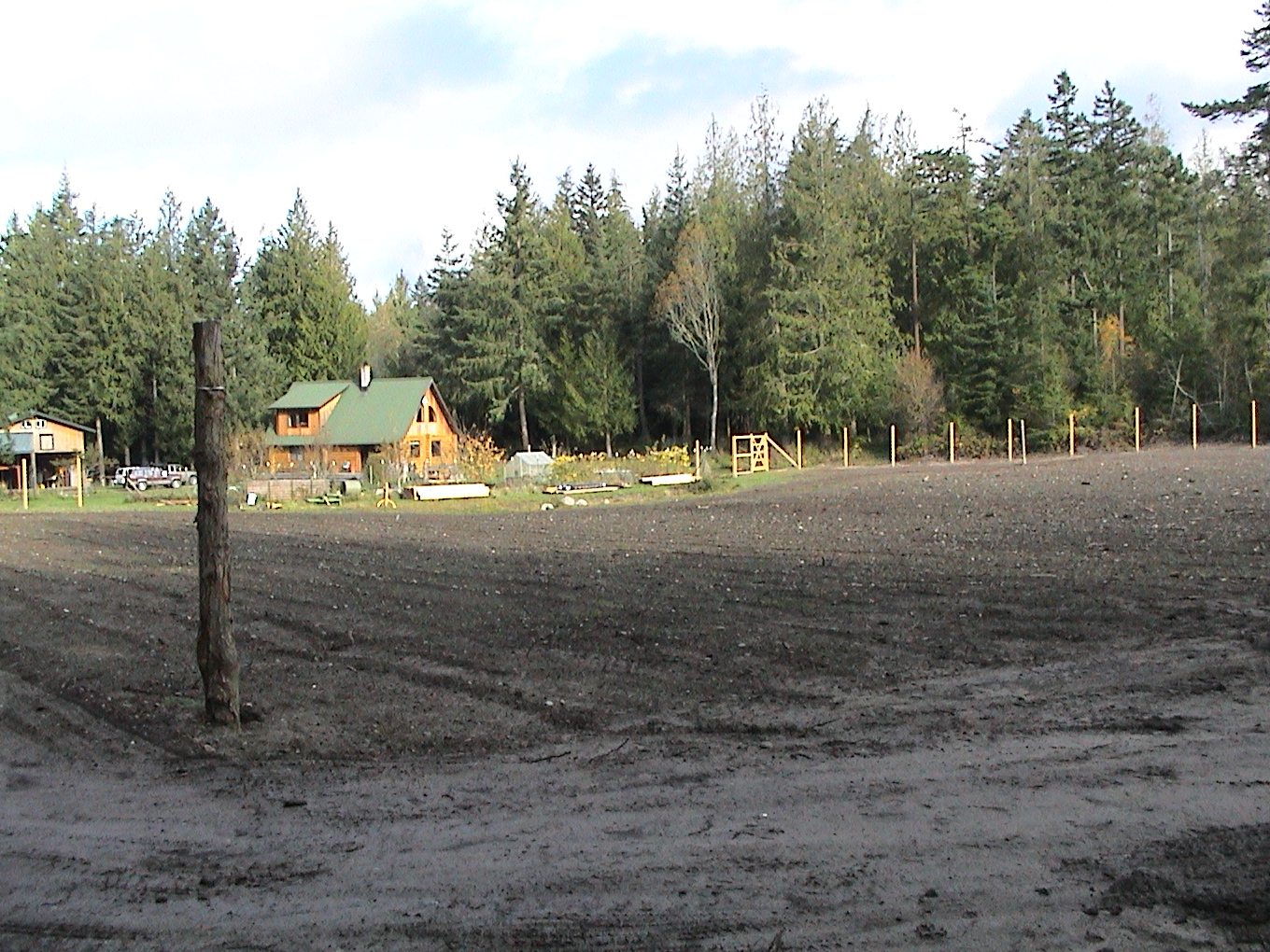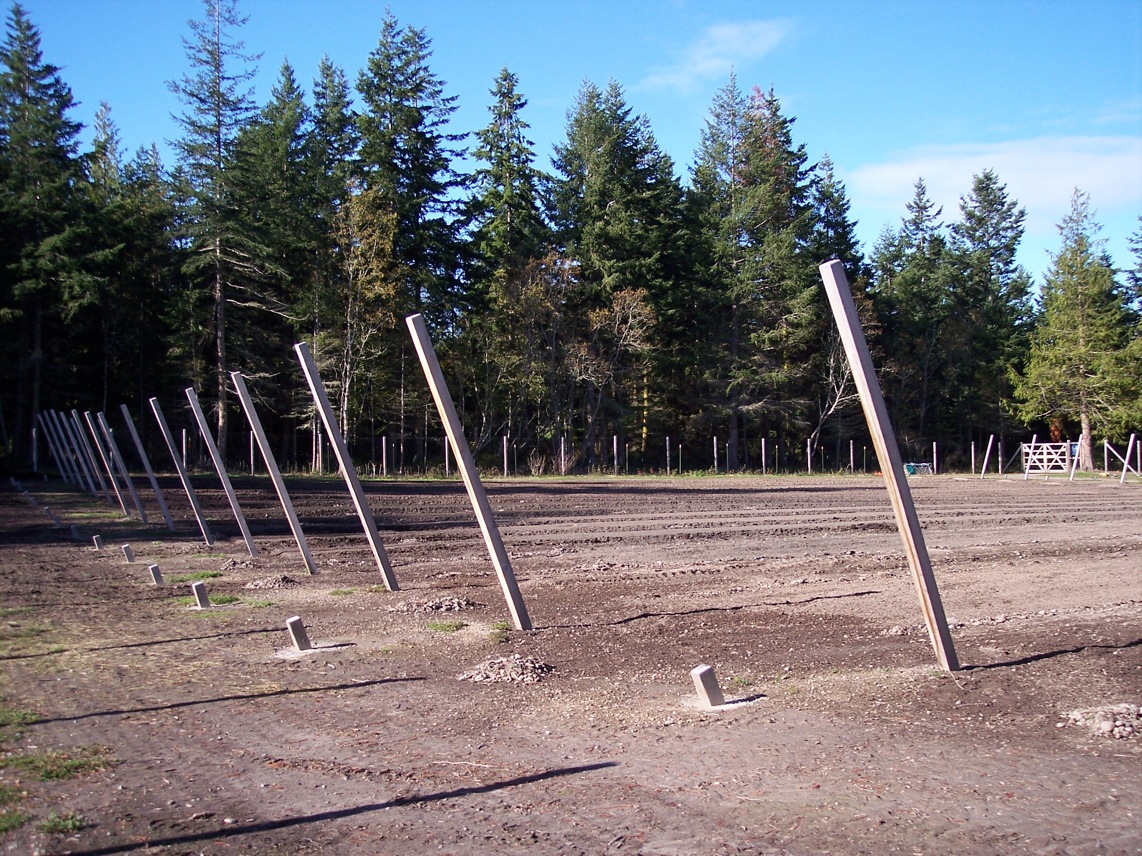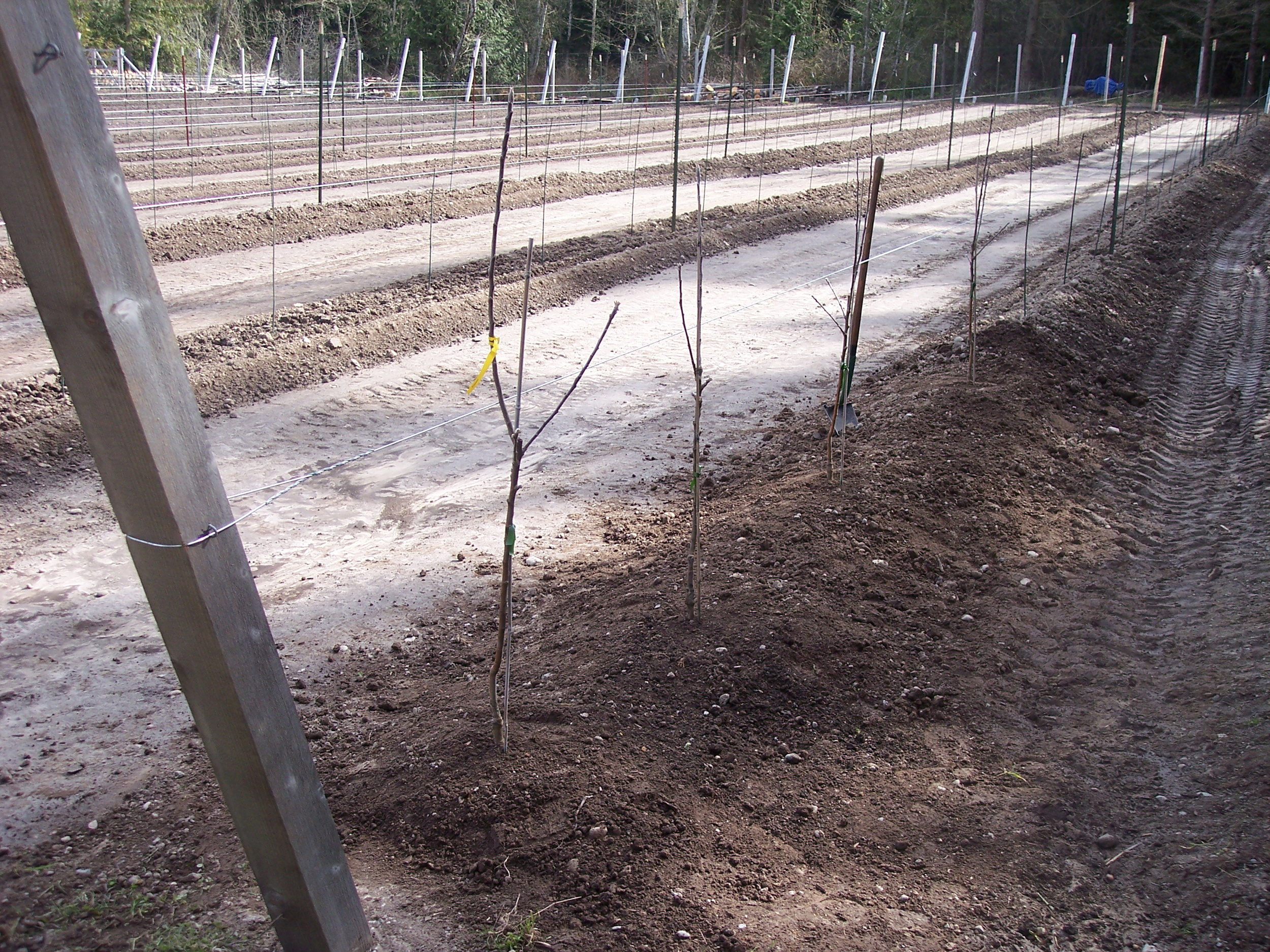OUR ROOTS
Having grown up in Washington State, we as 19 year old travelers, loved the opportunity to drink cider while visiting British Columbia. The fact that we couldn't drink anything in Washington for another 2 years certainly added to the appeal. Back in the 70's these were fairly sweet, lightly alcoholic, sparkling, and absolutely wonderful to our underage pallets. They sparked an interest that grew through many trials with the Red and Golden Delicious apples we would harvest from friend's orchards.
In the early 2000's we got serious and went to see how it was being made in the cider regions of England, France and Spain. The encouraging factor was that a lot of the production was done on very small scale, something that became abundantly clear was that we needed to plant a true cider apple orchard to make the type of cider we loved. We had always assumed we could use the bounty of apples here in Washington State but quickly realized that not all apples make amazing cider.
In 2003 we took the first cider class taught by Peter Mitchell at WSU. Between classes we had the helpful experience of tasting single varietal, fermented dry ciders and from that selecting the blend we wanted to plant. Shortly after, we planted our first 900 trees then waited patiently for our first fermentable size crop in 2006. At that point we had 200 gallons of dark gold, tannic, astringent juice and we jumped in with our first vintage. We produced two ciders, simply called Semi Sweet (which is now Spark) and Extra-Dry (which is now Pirate Plank). They were both bottle conditioned and unlike anything else being produced in the US at the time. Having tasted the ciders of Europe we were sure we were on the right track with this very traditional style of juice. But we had a lot to learn!
To us, the appeal of cider lay in its historic and traditional roots. We learned that cider had travelled from the East and up through Spain centuries ago spreading North into France and England with the Roman conquest. We knew that colonists had planted cider fruit and made cider for years before prohibition. We knew that cider had influenced many decisions in the US from the pioneers heading west to the highest political office.
It was interesting to us how different styles developed in each country. Over the centuries the local food and culture seemed to create the cider most fit for each region. The sharp acidic ciders of Spain, the sweet rich ciders of France, and the crisp tannic ciders of Britain, each so distinctly different and each so well suited to the culinary traditions of the region.
It has taken us a while to realize that here in the Northwest, much like us as teenagers in Canada, cider appreciation is in it's youth. We believe that after the fascination with every possible addition that can be made to apple juice wears off, people will begin to look for well crafted cider that sings with the unique beauty of each apple variety. (Or it could go the other way and we will begin to see lovely Pinot Noir with hops and Chardonnay with habanero!). It is hard to say, but here at Alpenfire we will continue to work on our craft and focus on the potential of apples, loaded with acidity, tannins, sugars, and extreme flavors.
WHY GO ORGANIC?
To us there is no option. The thought of using products that would potentially damage ourselves, our watersheds, the wildlife and everything we care about most is unimaginable. We prefer to work inside the limitations that organics impose, knowing that we are doing our part to create the kind of future we want for our family and planet.
Making cider with organically grown fruit assures us that we are not taking part in the tremendous overuse of synthetic fertilizers and herbicides happening around the world. The additional attention we are required to give to our orchard just keeps us in touch with all the amazing paths of nature out there each day.
We strive to craft a cider without the use of sulfite and it certainly has its challenges. Sulfite is an amazing tool for controlling the growth of unwanted yeasts and bacteria. Without the use of it we have to rely on extreme attention to the cleanliness of the fruit, the speed of processing, temperature control, and most critically the idea that “air is the mortal enemy of cider”. Because of the care we take in the orchard and on the production side, we feel this is possible.







